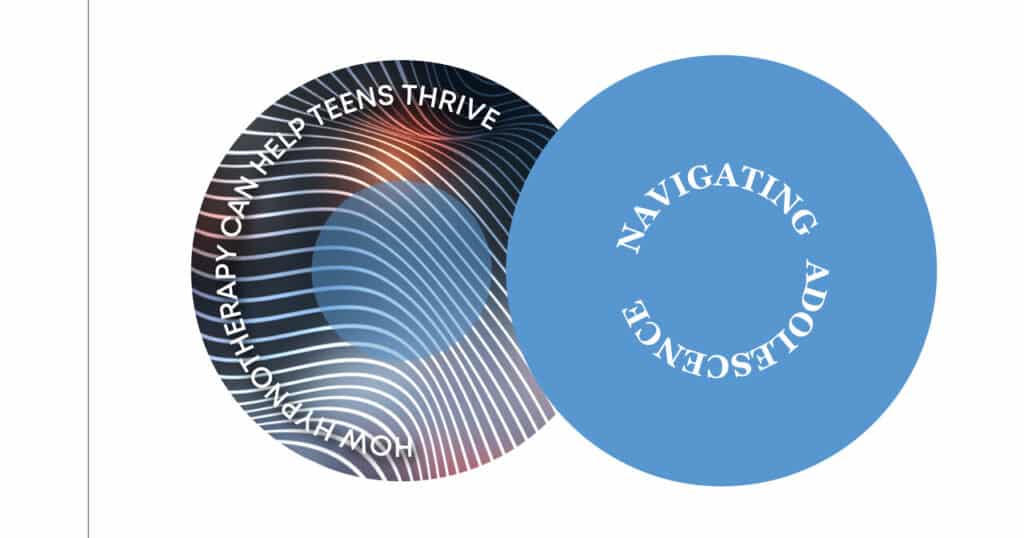Adolescence is a sensitive period marked by significant physical, emotional, and psychological changes. Teens face many challenges, from academic pressures to social dynamics, and it’s no wonder many struggle to navigate this complex phase. Hypnotherapy, an often misunderstood therapeutic practice, offers a unique approach to helping teens thrive. This comprehensive guide will explore how hypnotherapy can support teens during adolescence, its benefits, and success stories highlighting its transformative potential.
What is Hypnotherapy?
Hypnotherapy is a type of therapy that helps people relax profoundly and focus intensely so they can reach a trance-like state. In this state, they can explore their thoughts, feelings, and memories more quickly. This can help change their behavior, emotions, and attitudes, making hypnotherapy a helpful tool for mental health concerns. Hypnotherapy for children and hypnosis for kids may be particularly effective due to their heightened suggestibility during these formative years. This approach also helps address health issues such as thumb sucking, screen time addiction, and sleep disorders in pre-teens.
The Benefits of Hypnotherapy for Teens
Reducing Anxiety and Stress
Adolescence is often accompanied by heightened anxiety in children and stress. Hypnotherapy can help teens manage these feelings by promoting deep relaxation and providing coping mechanisms. The process helps access the subconscious mind, where deep-seated anxieties like social anxiety can be addressed and alleviated. Techniques such as progressive muscle relaxation and self-hypnosis techniques can be particularly effective in reducing anxiety symptoms and improving overall quality of life.
Improving Academic Performance
Many teens face academic pressures that can lead to performance anxiety and decreased focus. Hypnotherapy can enhance concentration, memory, and motivation, helping teens perform better in school. Techniques such as visualization and positive suggestions are used to boost confidence and academic skills. Hypnotherapy can improve study habits and help teens develop a sense of control over their academic performance, especially when it comes to dealing with public speaking challenges.
Addressing Behavioral Issues
Behavioral therapy in the form of hypnotherapy can be highly effective in addressing problems such as defiance, thumb sucking, aggression, or withdrawal. By accessing the subconscious mind, therapists can identify the root causes of these behaviors and help teens develop healthier coping strategies. This type of therapy can be an effective treatment in managing behavior issues, impulse control, and promoting emotional development.
Enhancing Self-Esteem
Low self-esteem is a primary issue among teenagers. Hypnotherapy can help improve self-worth by addressing negative self-talk and reinforcing positive self-images. This boost in self-esteem can lead to better social interactions and overall well-being. By reducing unwanted habits and promoting positive self-images, hypnotherapy for teens helps them develop a healthier outlook on life and improve their emotional development.
Coping with Trauma
Teens who have experienced trauma can benefit significantly from hypnotherapy. It provides a safe setting to process traumatic events and release associated negative emotions. Hypnotherapy can facilitate healing by helping teens reframe their experiences and develop resilience. Hypnosis treatment is often used to address specific traumatic memories and help teens move forward with a stronger sense of control and future adult growth.
How Hypnotherapy Works
The Role of the Hypnotherapist
A hypnotherapist is a trained mental health professional who guides individuals into hypnosis. They use various techniques to facilitate relaxation and focus, creating an environment where the subconscious mind can be accessed and explored. The therapist’s role is crucial in ensuring the process is safe and effective. Hypnotherapy sessions are tailored to meet the unique needs of each teen, addressing specific mental health issues.
Hypnotherapy Techniques
- Guided Imagery: This involves visualizing optimistic scenarios to promote relaxation and healing.
- Suggestion Therapy: Positive suggestions are given to the subconscious mind to change bad habits or thoughts.
- Analytical Hypnotherapy: This technique explores the root causes of issues by delving into past experiences and emotions, such as chronic pain or headache pain.
The Hypnotherapy Process
The process typically begins with discussing the teen’s goals and issues they want to address. The hypnotherapist then guides the teen into a state of hypnosis using relaxation training. Once in this state, the therapist employs various methods to address the teen’s needs. The session ends with the teen gradually being brought back to full awareness. This hypnotherapy process can vary in length and complexity depending on the individual’s needs.
Who Can Benefit from Hypnotherapy?
Teens with Anxiety and Depression
Hypnotherapy is particularly beneficial for teens struggling with anxiety and depression. It helps them access and process underlying issues, significantly improving their mental health. Hypnosis scripts are often used to address specific symptoms and promote healing.
Teens with ADHD
Teens with Attention Deficit Hyperactivity Disorder can benefit from hypnotherapy’s ability to enhance focus and concentration. Techniques used during sessions can help manage symptoms and improve overall functioning. Hypnosis in adolescents is effective in promoting better attention and reducing hyperactive behaviors.
Teens Experiencing Peer Pressure
Hypnotherapy can help teens develop resilience against peer pressure by boosting self-esteem and promoting positive decision-making skills. This is particularly useful in helping them navigate the complexities of social dynamics and maintain a strong sense of self.
Hypnotherapy vs. Traditional Therapy
Deep Subconscious Access
Unlike traditional therapy, which often relies on conscious thought processes, hypnotherapy accesses the subconscious mind. This can lead to deeper insights and profound healing. The ability to address issues at a subconscious level makes hypnotherapy a powerful tool for lasting change.
Faster Results
Many individuals find that hypnotherapy produces quicker results compared to traditional therapy. This is because it targets the subconscious mind directly, where many issues originate. Hypnosis programs are designed to provide rapid relief from symptoms and promote overall well-being.
Non-Invasive and Safe
Hypnotherapy is a non-invasive treatment option that is generally safe when conducted by a qualified professional. It provides a gentle approach to addressing deep-seated issues. The hypnotic experience is typically enjoyable and free from adverse side effects.
How to Get Started with Hypnotherapy
Finding a Qualified Hypnotherapist
Finding a qualified hypnotherapist with experience working with teens is essential when considering hypnotherapy. Look for certifications and professional affiliations to ensure credibility. Organizations such as Charlie Health and other adolescent health care providers can offer recommendations and resources for finding reputable hypnotherapists.
Setting Realistic Goals
Before starting hypnotherapy, discuss your goals with the therapist. Clear objectives will help guide the sessions and measure progress effectively. Setting realistic goals is crucial for achieving the desired outcomes and ensuring a successful therapeutic experience.
Creating a Supportive Environment
Ensure that the therapy environment is comfortable and supportive. A safe space is crucial for practical hypnotherapy sessions. The entirety with credit to the therapist’s expertise and the supportive environment contributes to the effectiveness of the therapy.
FAQs
Q: What is the primary goal of hypnotherapy?
A: The main goal of hypnotherapy is to access the subconscious mind to resolve deep-seated issues, promoting mental and emotional well-being.
Q: Is hypnotherapy suitable for all teens?
A: While hypnotherapy can benefit many teens, it may not suit everyone. It’s essential to consult with a qualified hypnotherapist to determine if it’s the right fit.
Q: How long does a hypnotherapy program last?
A: The duration of hypnotherapy programs can vary. Some may be short-term, lasting a few weeks, while others might extend over several months.
Q: Can hypnotherapy be combined with other forms of therapy?
A: Yes, hypnotherapy is often used in conjunction with traditional therapy methods, such as cognitive-behavioral therapy (CBT) or medication, to offer a comprehensive treatment plan.
Conclusion
Hypnotherapy offers a unique and practical approach to supporting teen mental health. By accessing the subconscious mind, it provides a powerful tool for addressing anxiety, depression, behavioral issues, and trauma. Whether dealing with academic pressures, peer pressure, or personal struggles, hypnotherapy can help teens navigate adolescence with greater ease and confidence. If you or a loved one is considering hypnotherapy, seek out a qualified professional to guide you through this transformative process.
Empower Teen Mental Health with Hypnotherapy
If you or someone you know is considering hypnotherapy, don’t hesitate to seek professional guidance. The proper support and a tailored approach can make all the difference in your cognitive health journey. Hypnotherapy for teenagers can provide the necessary tools and support to help teens thrive during this critical period.





